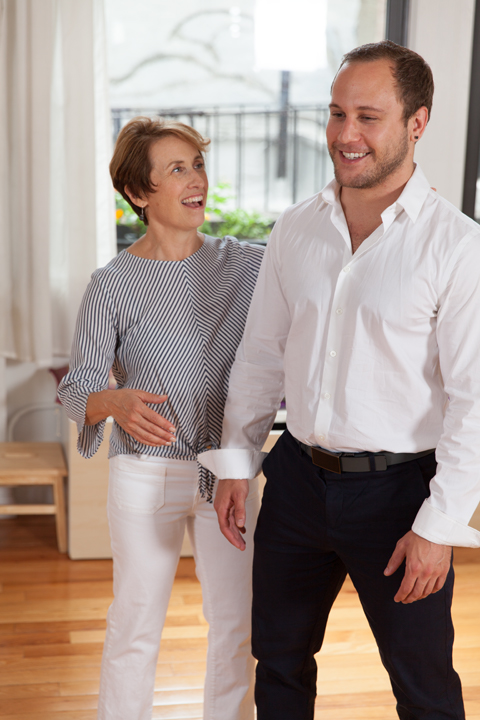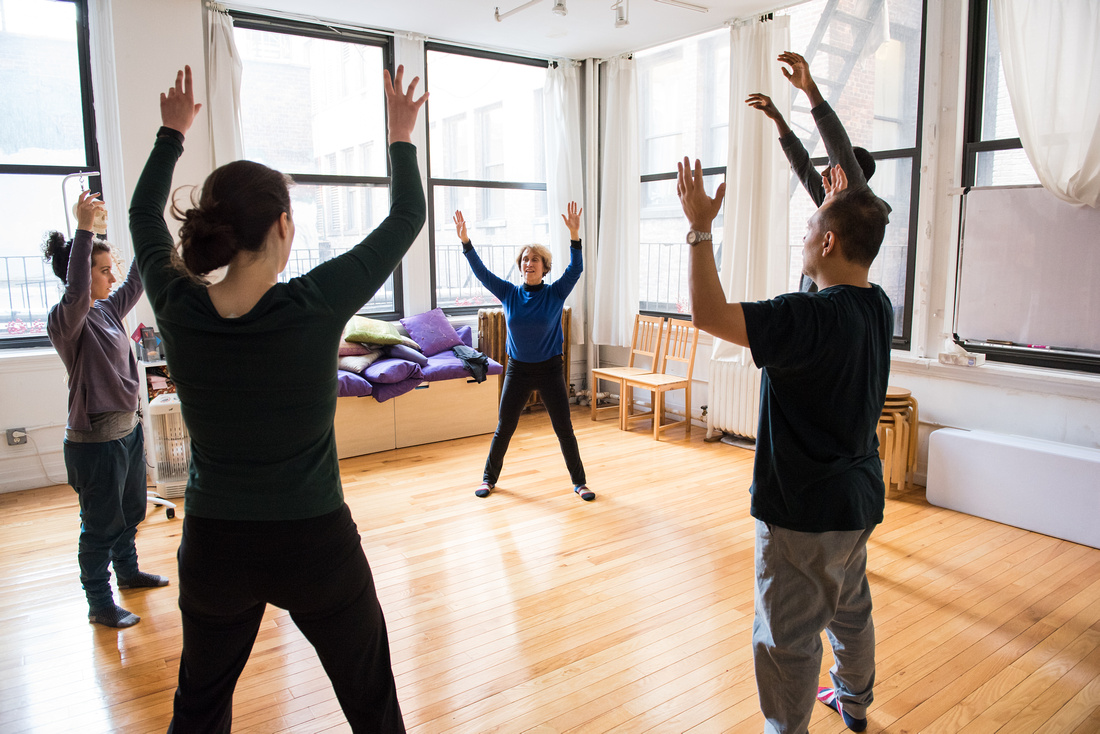
How You Move Matters
Free Alexander Technique Exercises, Tips, and Resources
Here we are... Now
Now.
So here we are… we might have started feeling lost or overwhelmed or caught up in an emotional spiral. And we decided to do something else. (how brave!). And where are we now?
Maybe you’re sore, maybe thirsty. Perhaps. And maybe a bit raw but also more open, no longer fighting yourself. Listening in a fresh way. Taking in. Taking in is nurturing, it’s kindness, it is care and compassion.
In this series, I’ve been drawing connections between the Alexander principles and a mindfulness practice, RAIN. There’s something refreshing and renewing about how both methods invite us to focus on the feelings at hand rather than grasp a result.
We began with R - recognize and followed a sometimes challenging intentional practice: A - allow and I - investigate. Now we are ready for N.
It is already here! Take it in: you are OK, you are here, now.
I’ve seen N of RAIN called a few different things: non-attachment, nurturing, natural awareness. I think it is also our natural coordination. When we stand as our honest selves our actions are centered, and we have a sense of being. Alexander recognized natural poise and taught people to get out of their own way so that they could access their deeper sense of strength and readiness.
Your natural coordination might be felt as a kind of tall peacefulness, from head to heels, an embodiment of non-attachment. You aren’t the emotions, you aren’t your habits; your identity is not defined by your feelings. Have you noticed that when you take a break from making things about you that your compassion comes to the forefront? For others and for yourself.
In this final post on RAIN and AT practice we get to rest in the Now, to simply be. What if we let go of rushing and doing and trying? Even while there is injustice, war, and climate change. Whether you sit or stand or lie down in Active Rest, you get to rest and to be. Now.
One of my favorite poems:
Keeping Quiet, by Pablo Neruda,
Now we will count to twelve
and we will all keep still
for once on the face of the earth,
let's not speak in any language;
let's stop for a second,
and not move our arms so much.
It would be an exotic moment
without rush, without engines;
we would all be together
in a sudden strangeness.
Fishermen in the cold sea
would not harm whales
and the man gathering salt
would not look at his hurt hands.
Those who prepare green wars,
wars with gas, wars with fire,
victories with no survivors,
would put on clean clothes
and walk about with their brothers
in the shade, doing nothing.
What I want should not be confused
with total inactivity.
Life is what it is about...
If we were not so single-minded
about keeping our lives moving,
and for once could do nothing,
perhaps a huge silence
might interrupt this sadness
of never understanding ourselves
and of threatening ourselves with
death.
Now I'll count up to twelve
and you keep quiet and I will go.
Photo credits:
Photo by dan carlson on Unsplash
Photo by Danie Franco on Unsplash
Photo by Zachary Keimig on Unsplash
Photo by Maria Teneva on Unsplash
How To Avoid Being Triggered By Your Family During the Holidays
How to avoid being triggered by your family during the holidays
The holidays are the perfect time to reconnect with your family—which, for many of us, brings up mixed emotions. We love our families and we want to see them and spend time with them. But for many of us, family members also have a unique ability to drive us crazy, causing us to fall back into old patterns and making us feel like we never left.
This holiday season, if you start to get triggered by your family’s annoying habits—or you find yourself reverting back to your childhood role in a maelstrom of dysfunctional family dynamics—remind yourself of one thing. All those reactions, whether they're justified or not, are reactions. They're just patterned responses to some stimulus—and those reactions usually happen entirely on automatic pilot.
When a certain someone makes a passive-aggressive comment about your weight or a pointed joke about the fact that you’re still single, wouldn’t it be nice to find a way to create a gap between what they say and your reaction to it? To create a little cushion of time for yourself so you can be less reactive to triggers?
A good place to start is by activating your postural balance so that your movement coordination reflects a calmer, more creative use of your central nervous system.
Start taking care of our nervous system by taking care of your head. Your head is subject to the actions of your neck. Freeing up your neck is the key to taking care of your head, and therefore yourself.
You don’t need to be an anatomy expert to know something about your neck muscles because they get super tight when we're tense. The neck has layers of muscles, some close to the spine, others creating the graceful shape of your neck. These muscles move your head and manage your balance.
Take a moment to get more in touch with your neck. Start by nodding your head for a moment and feel the muscles around your throat and the back of your neck. Turn your head side to side, looking right and left. You'll feel muscles move but also stretch. Tilt your head like you're listening to your shoulder, first on one side and then the other. You'll feel a lot of stretching and contracting going on.
So, now that you’ve found those muscles that move your head and directed your awareness to them, what if you soften those muscles instead of tightening them so you aren't pulling your head at all?
When you soften those muscles, your head is much freer, and the spring-like action of your spine can release. Without pressure from tight neck muscles, the weighty head can actually rebound upward, allowing your stature to expand. Back muscles and spinal discs that were compressed can follow along in spring-like release. Breathing becomes less compromised by musculoskeletal pressure.
This anti-triggering movement frees your brain up and out instead of pulling your brain down and into your body and mindless reactivity. So give it a try next time the holiday cookie tray gets passed around. Freeing up your neck/head/back relationship will give you a cushion of time for being less triggered.
What can you do in the cushion of time you’ve just found? Take a minute to appreciate being unhooked and take your attention off yourself. Observe your family members neck and heads in action. Notice how they're moving (or not moving) and what's happening with their balance. Are they scrunching down on themselves? Are they moving easily with lots of flow?
Chances are that you've been unconsciously mirroring the tension of the people around you. If they're holding an opinionated position in a conversation, they're probably also holding a rigid physical position. If you can un-position and be more flexible, you’ll have a great advantage. You won’t be stuck.
So how does ease and freedom in your neck help you be less reactive emotionally? Flexible neck/head/back coordination goes along with resiliency. Whereas tension makes us more self-conscious, release of tension enhances our awareness of what's going on moment-to-moment around us. Like other vertebrate animals, we’re more rigid when we’re on alert and more plastic when we’re at ease.
When you "unset" your neck, you're moving out of your old patterns. You're opening up the possibility that you don't have to react to your usual triggers. You're opening "up and out" to new experiences with your family. And they’ll be experiencing you as your most resilient, calm, and joyful self.
Happy Holidays!
Belinda Mello
Everything is changing - What can I count on?
Everything is changing - What can I count on?
Sometimes I crave change. When it's my own choice to change my habits, I look for change. When feeling playful, I might switch things up by instigating a change. At other times I hate change and the feeling of vulnerability that comes with unexpected change. I might then react with resentment or resistance. Change is happening all the time, and these days I often feel at odds with the rapid changes happening from the White House. When change feels out of control, what can I count on? Is there something that I can do to find support through change? How can I re-establish my sense of wholeness and unity so that my vulnerability isn’t a liability, but an aspect of my resiliency?
We’ve been training for change all our lives!
I was fortunate to grow up in place where I could wander and play outdoors with other kids for hours. We lived within the rules and limits set by our parents, but adults did not structure our play. I remember learning to climb trees by trial and error. At first, trial and error taught me about fear of falling and my tendency to let fear discourage me or stop me from moving completely. I saw how the other kids who could climb easily had a fearless attitude. I mimicked them; I stole their moves and their upward intensity. I developed a pattern of hand and footholds that allowed me to feel confident in getting up and down from one my favorite maple trees. I learned how light and free I was when I believed it was possible — I just had to follow the “up” in my being and my movement, not resist it. My upward intention and energy made it fun.
In Alexander Technique, and movement-based practices, there is an emphasis on liberating the “up and out” direction of our core posture and coordination. A former AT student (Joan Brittain) sent me an email about returning to her T’ai chi class after a very stressful time away:
Our teacher David said I missed some stuff but one of the things everyone needs to keep working on is keeping the "ding" up--keeping the crown of the head up--through every movement. As he demonstrated this, I thought, "Oh yeah, Alexander's primary control." Then, he said, looking me in the eye, that, ideally, we would maintain an awareness of the ding and of keeping our "frame" as we move, at every moment. And, I said with a certain look in my eye (you know that look), "Yeah, we could." He stopped, surprised, and repeated what I'd said under his breath, then chuckled, and moved on to his next point.
The ideal of keeping an upward direction going all the time seems like a tough expectation, but if we are treat ourselves as the lively and whole beings we are, we can experience an appreciation of an on-going process – and develop a sense of humor about the ebb and flow or trial and error in that process.
One thing we can surely count on is the constant state of change, and our intrinsic mind/body unity. Our unity or psychophysical wholeness is reflected in our design for freedom of thought and freedom in action.
Your “primary control” or “ding” or “upward intention” can be counted on to be constantly available. Your energy is always going on, and you are always organizing through your head/neck/back relationship, up and/or down. When any of us are afraid, we pull downward or inward. When we tighten down we interfere with our intrinsic response to gravity, we feel our discouragement, and we sense our reluctance to be moving. The way back to resiliency, and to grace, is through awareness of choice and willingness to let go of resistance. It can be as simple as unclenching your fist or agreeing to let your ribs be spring-y as you breathe. Releasing your thought/movement is an opening for a new direction and a renewed sense of wholeness. You can count on your natural design; you are a cohesively unified thinking, feeling and moving being.
F.M. Alexander’s 4th and last book, written in the 1930s and 40s at a difficult period of change and war emphasizes the significance of approaching action through an understanding of the psychophysical unity of self. He believed that with knowledge comes the responsibility to use that knowledge well. The book is titled, The Universal Constant in Living.











